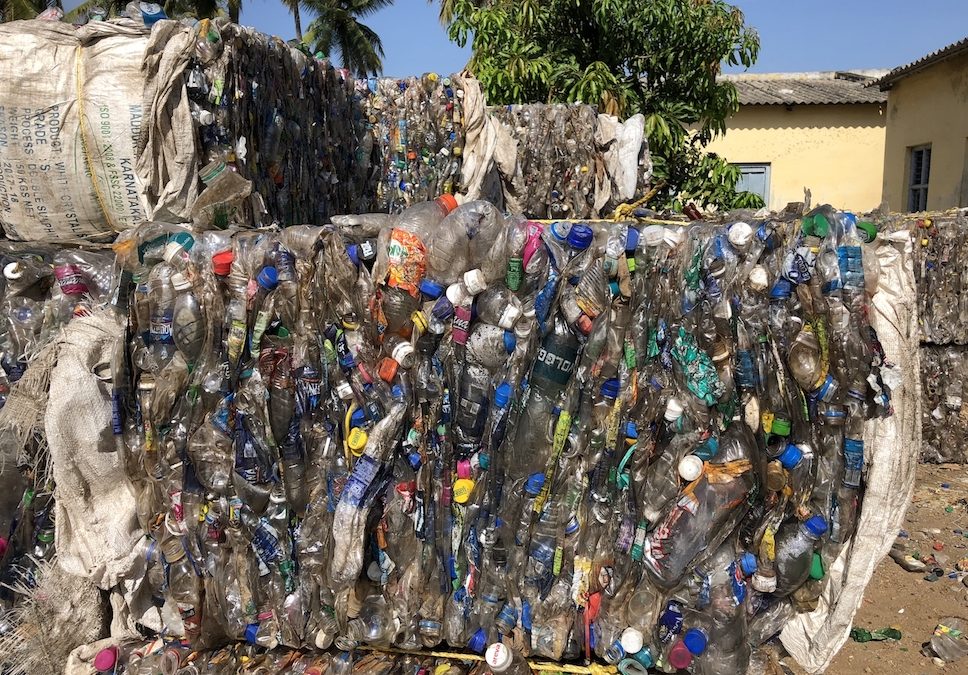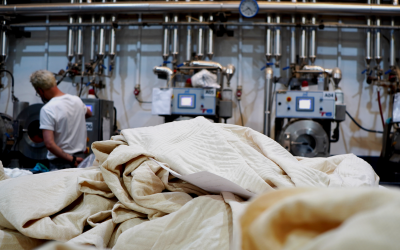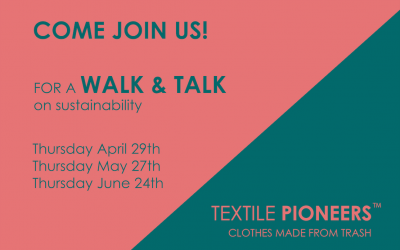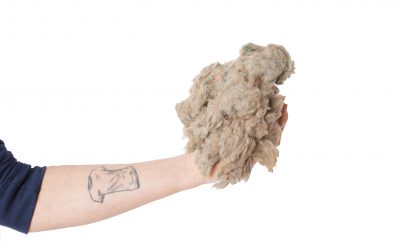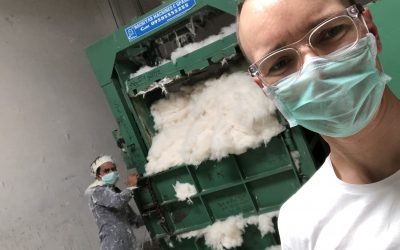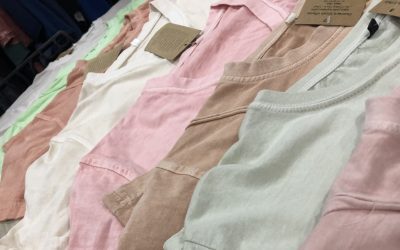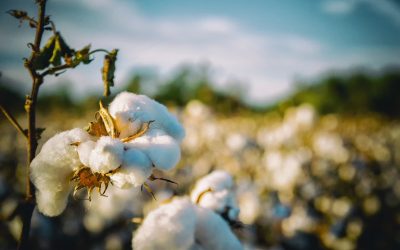What is recycled polyester?
The recycled polyester used for textile production is often made from PET bottles, basically old plastic water or soda bottles. Our garments are made from PET bottles collected from the nature in Karur, India. These are then sorted by colour, shattered, processed and made into new yarns. In our factories, we use no chemicals in this process.

Is recycled polyester really sustainable?
Yes, we mean that it is. We engage locals in the villages in India where we produce our garments to collect PET bottles from the nature. Like this, we prevent plastic waste from going into our oceans or to landfills and provide local families with a steady income. Ideally, the amount of plastic thrown in the nature should be zero. But until that happens, the next best thing is to collect it and keep it in the loop.
By using recycled polyester, we also hope to decrease the production of new polyester, saving up to 79% of carbon emissions per garment.
To ensure the lowest carbon footprint possible, we have set up the whole supply chain within a short radius. The collection of the bottles, turning them into new yarn, knitting, sewing and packaging of the finished goods are all made locally in villages in India. Our garments are also GRS certified.
Where is recycled polyester used?
The recycled polyester is perfect for sports garments, such as tops, tights, socks and jackets. We also use it in a mix together with recycled cotton, to make extra durable clothes that lasts longer. The recycled cotton fibre is not as strong as the virgin cotton fibre and need to be mixed with another material when turned into a garment. That’s where recycled polyester comes into the picture.
Our mix is usually 60% recycled cotton and 40% recycled polyester, giving the garment a cotton touch with some added benefits from the soft polyester fibres.
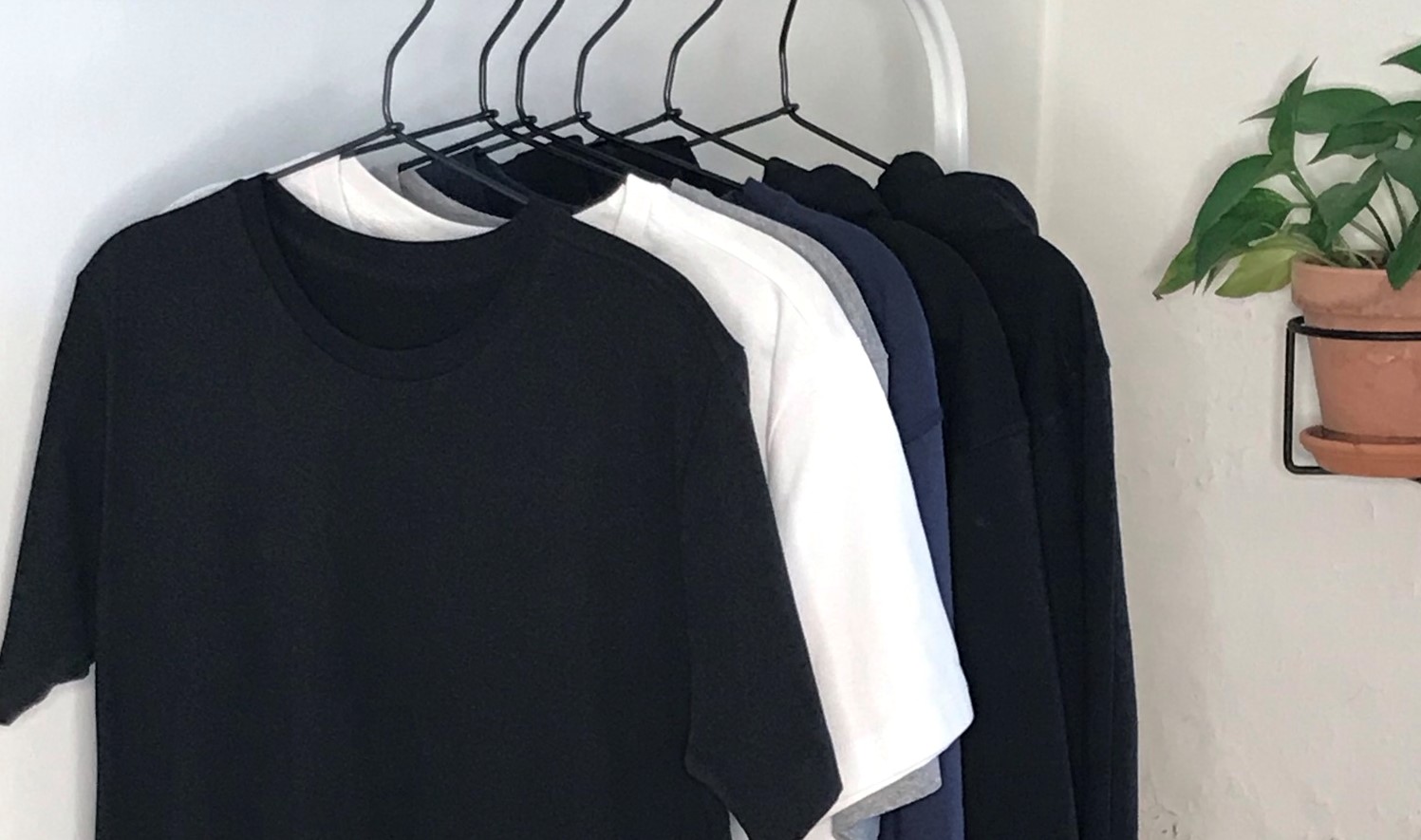
READ MORE
Vision for textile-to-textile future
Danish Pioneer-work
New projects are emerging in Denmark and abroad; They are on a mission to make a living off of creating new textiles from textile waste. Textile Pioneers has made their mark at home [in Denmark ed.] for their effort.
The small business, based in Copenhagen, has just started a collaboration with a factory in Portugal, where they kan recycle almost any type of textile. By using Mechanical recycling, where the textiles are scratched up and subsequently spun into new yarns, which can be used for new garments
2nd of September 2021, on stage at the National Climate meet in Denmark
Discussing sustainable production and consumption2nd of September 2021, we could be found on stage at the National Climate meet in Denmark, discussing sustainable production and consumption. After 3 days at the National Climate meet we left feeling inspired and...
Interested in Sustainability? Join our WALK & TALK?
COME JOIN US FOR A WALK & TALKWe are introducing a series of monthly walk & talks. We’d like to share our knowledge, and opinions, on all subjects related to sustainability. We’d also like your take on sustainability. We often hear that Government...
New leaps for textile recycling: becoming greener and more commercially interesting
Things are moving on the recycling arena; the quality of the output is way better with new technology and we can now cut out chemicals all together. Have a read to learn more.
We in Textile Pioneers have created the first Danish initiatives on recycling old stock lots from a fashion company and make new garments of the same material.
What 2021 will bring to textile recycling
Thoughts from circular textile nerds at TEXTILE PIONEERS in Copenhagen. This is what we see coming in 2021!
Natural dyes – going back to the roots
The dyeing process has a large negative climate impact in clothes production. But there are better options! Learn more about Natural dyes in this article. We can use natural waste materials and get beautiful colors on recycled cotton garments. It’s all about going back to the roots.
Ever heard of authentic organic cotton? Even better than ‘normal’ organic cotton.
We have all heard that organic cotton is better than conventional cotton. But is there an even better option out there? Wanna learn about authentic organic cotton – read this!

